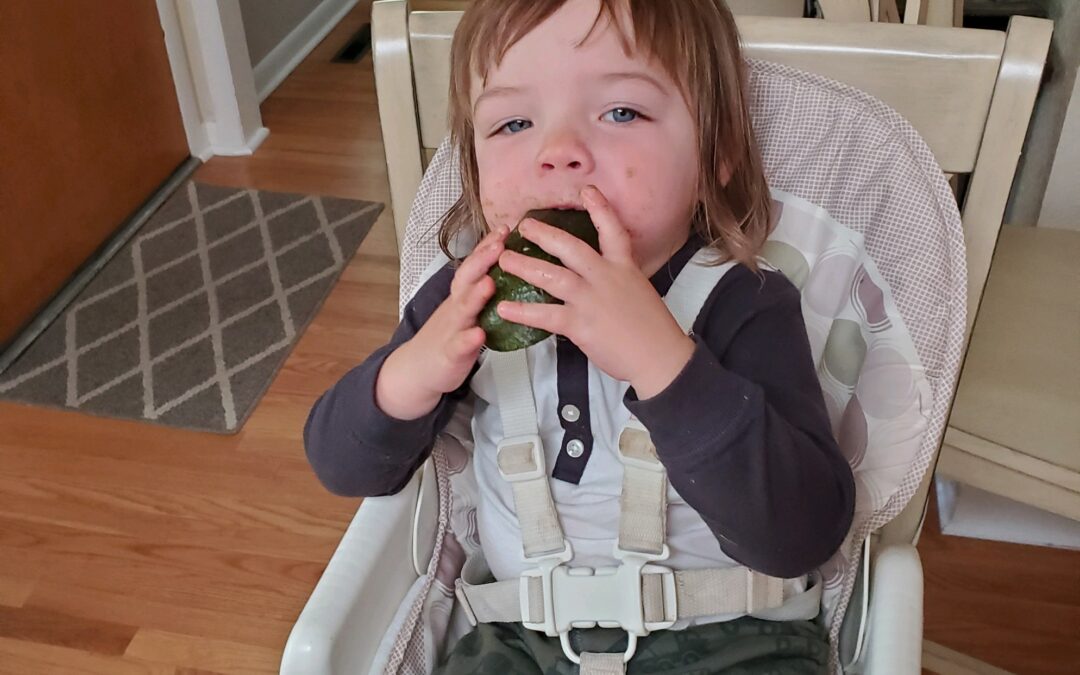Guest post by Shawna Walker, RDN
Feeding a child is one of the most loving ways a parent can render care. The pressure to meet growth and development needs, protect them from illness, and maximize their health can be overwhelming. With intentionality, it might be easier than we think. When deciding what to feed your children, think big picture. Children need a good balance of nutrients: wholesome carbohydrates, proteins, fat (especially important for brain development in the first two years of life), micronutrients like vitamins and minerals, as well as electrolytes including sodium, potassium, and chloride. A balance of all nutrients is necessary for metabolism, immunity, and cognitive development. Children also require adequate calories to maintain body weight within a healthy range. For children with special needs, calorie needs can vary widely from estimated needs for age, which can cause additional stress for parents, but with a little guidance, anxiety can be minimized.
When meal planning for your family, it’s often easiest to think in food groups, which in turn keeps the focus on whole foods. The Dietary Guidelines for Americans for 2020-2025 have been translated into My Plate for more practical application. Be sure to look at the Life Stage Pages for the recommendations for the specific age of your child. It is easy to create a personalized my plate plan for your child on this site (or with the My Plate app) to assist with meal planning and understanding ideal portion sizes for age. The key is a wonderful balance of a variety of foods over an entire day or over a few days, so all essential nutrients are consumed. Additional resources on this website include suggestions for dealing with picky eaters, keeping food safe, and involving your child in meal preparation.
It is easy to get anxious when children won’t eat. Our goal is to create a happy eater who has a healthy relationship with food. Children who grow to see food as nourishing, fun, social, and enjoyable tend to grow into adults who are able to maintain positive mealtimes where they eat enough to promote health but not so much they are at risk of future chronic disease. Ellyn Satter, MS, MSSW, a dietitian, family therapist, and internationally recognized authority on eating and feeding created The Ellyn Satter Institute a helpful guide for setting children up for successful eating. She is the author of several books, including Child of Mine: Feeding With Love and Good Sense. The most practical tool for family mealtimes is her Division of Responsibility in Feeding, where parents have defined jobs (when, where, what) and the child has defined jobs (whether, how much). Following these jobs and learning to trust your child’s natural hunger and satiety cycles is the foundation to a positive parent/child feeding relationship and will lead to pleasant mealtime experiences. Her guidelines are research based. Study the videos, articles, and educational opportunities on the website to glean even more positive parenting tools.
Feeding and mealtimes provide a unique opportunity for building a relationship with your child. As they grow, children who eat with their families tend to do better in school, develop the skills to converse with adults, and stay connected with their parents. Consider feeding a joy and the benefits will naturally follow.
If your kiddo is struggling to feed himself, has become a picky eater, or if you have any other questions about how to support your kiddo’s growth and development reach out for an evaluation. Our therapists at Kid Physical have over 34 combined years experience offering specialized, holistic healthcare for children of all ages. Our top priority is providing support for both caregivers and children so that they can reach their highest potential.

